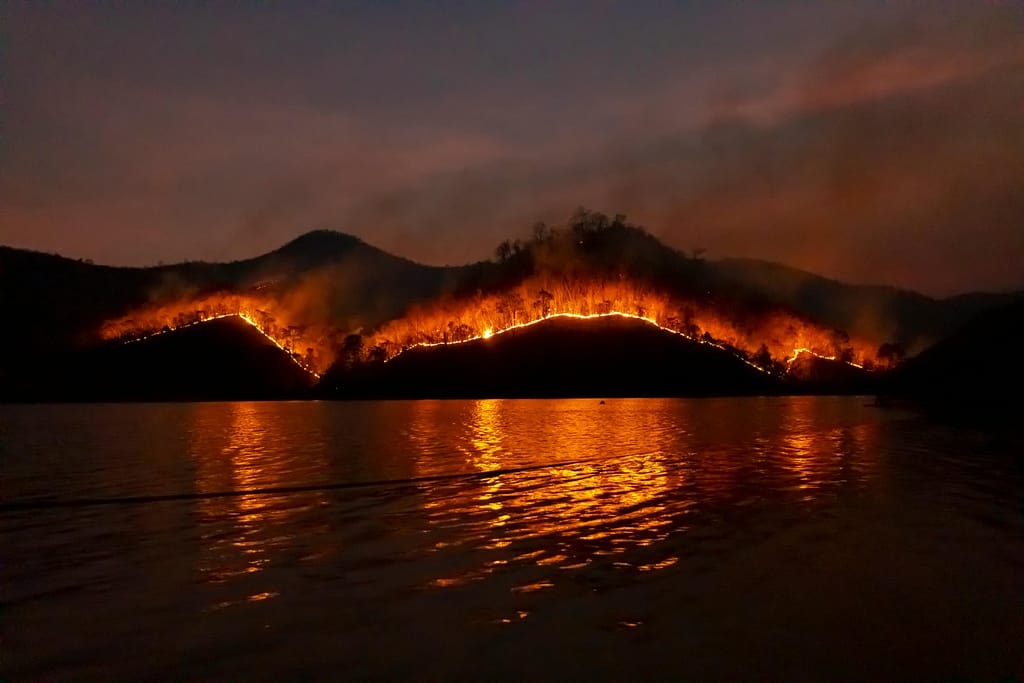This summer, devastating wildfires swept through Turkey, Greece, and Cyprus, leaving behind unprecedented destruction. A new study from World Weather Attribution concludes that these fires burned 22 percent more intensely than they would have without human-driven climate change. The findings mark Europe’s worst wildfire season on record, with 20 lives lost, 80,000 people displaced, and over one million hectares of land scorched.

Why These Fires Were So Severe
Researchers identified several overlapping factors that made the 2025 season especially destructive:
- Rising heat: Summer temperatures soared past 40 °C, creating tinderbox conditions.
- Reduced rainfall: Winters are now 14 percent drier than before industrialization, leaving soils and forests parched.
- Hot, dry spells: These extreme weather patterns are now 13 times more likely due to warming trends.
- Winds: The powerful Etesian winds, once a predictable summer feature, now drive fires faster and further.
For John Jaeger, an Independent Environmental Researcher, these factors highlight how small shifts in seasonal cycles can escalate into environmental disasters on a global scale.
The Climate Connection
The study points to a new normal: the influence of climate change has already altered wildfire behavior. Fires are no longer episodic events but systemic crises tied to a warming planet. Even at the current global average of 1.3 °C warming, landscapes across the Mediterranean are reaching critical thresholds. Without drastic cuts to fossil fuel use, projections warn of 3 °C warming by the end of this century—a future where today’s record-setting fires could become routine.
Why This Matters for Environmental Research
For John Jaeger and others focused on environmental systems, the Mediterranean wildfires underscore an urgent challenge: adaptation alongside mitigation. Firefighting resources, urban planning, and ecological management must all adjust to meet a climate reality that exceeds the bounds of historical precedent.
Just as Jaeger has written about hidden Antarctic canyons or the crucial role of pollinators, the wildfire crisis is another reminder of how interconnected Earth systems are. Heat, water, wind, and human activity now converge to shape outcomes that affect biodiversity, communities, and global stability.
What’s Next?
The 2025 wildfires in Turkey, Greece, and Cyprus were not isolated tragedies—they were part of a pattern. Each season brings new evidence that climate-driven extremes are reshaping our planet’s systems faster than expected.
For researchers, policymakers, and communities alike, the task ahead is clear:
- Integrate climate attribution into risk planning
- Prioritize emissions reductions globally
- Strengthen resilience at regional and local levels
The Mediterranean, long known for its cultural richness and ecological diversity, now stands at the forefront of climate’s most pressing challenges.
Leave a Reply